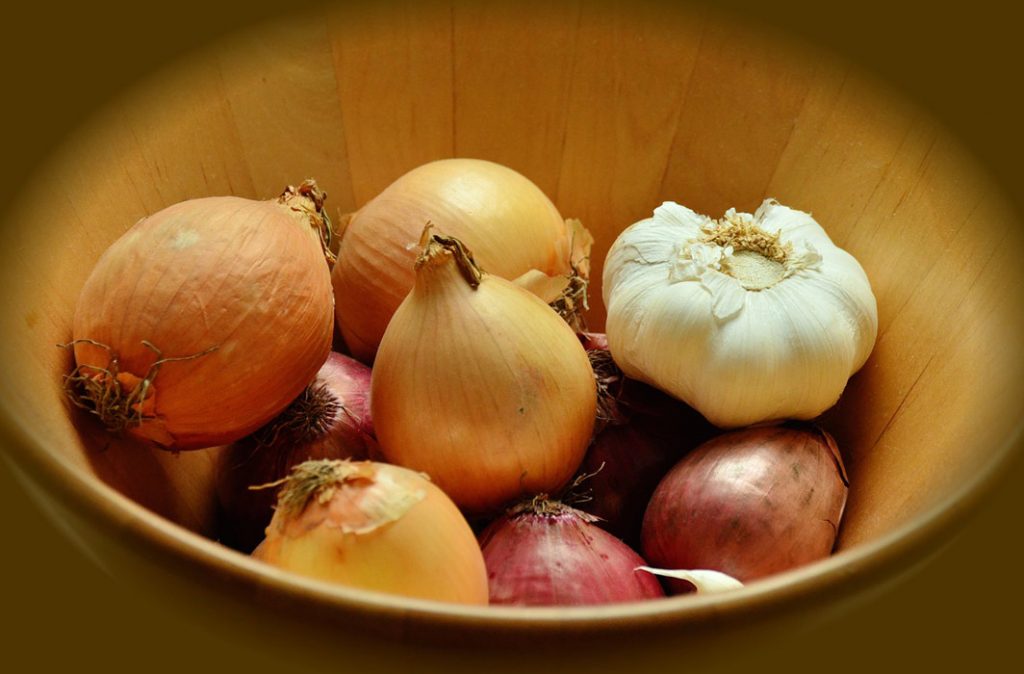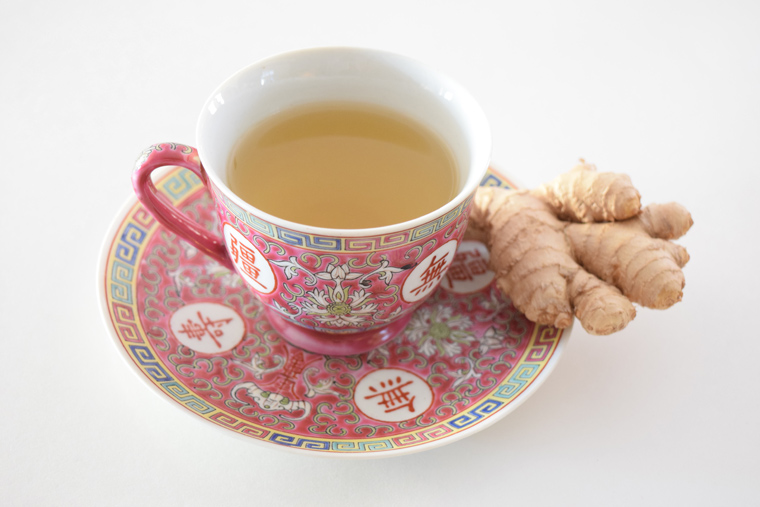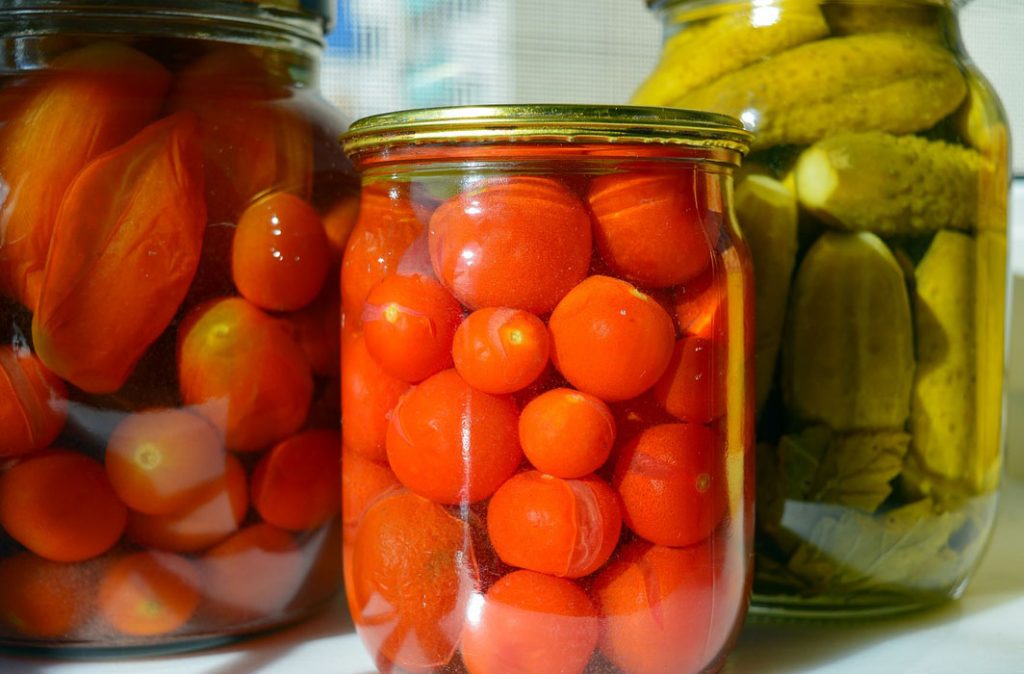3. Garlic and Onions
Although not the ideal food to serve on a romantic night, garlic and onions have amazing immune boosting abilities. Allicin, the chemical compound that gives garlic and onion its pungency, has been shown in studies to increase the body’s ability to ward off bacteria and viruses.

Garlic and onions add incredible flavor to dishes, so it is easy to add them to your daily diet. Keep a small container of chopped garlic and onions in your fridge and add to foods like omelets, meat dishes and soups.
Some research indicates that cooking garlic can diminish its health benefits, so if you’re brave, maximize the immune fighting powers and consume two raw garlic cloves per day.
4. Ginger
Ginger contains sesquiterpenes, which are chemicals that help suppress coughs and clear stuffy noses. Eating fresh ginger regularly helps inhibit the attachment of rhinoviruses to cells and also promotes the secretion of antiviral chemicals to help fight viruses found in mucus membranes.

Keep ginger fresh by storing it in an airtight ziploc bag with all of the air pressed out. Only peel what you plan to use that day. Grate a teaspoon of fresh ginger into your tea, or serve it on soups. Ginger also helps with digestion, if you chew on it or drink ginger tea after meals.
5. Fermented Foods
Fermented foods like yogurt, kefir, pickles, kimchi, sauerkraut and kombucha are packed with probiotics. Probiotics are good bacteria that play an vital role in balancing your body’s microbiome. These healthy bacteria helps balance your digestion, immunity, and metabolism.

When buying fermented foods be sure that all of your live culture foods, including pickles and cabbage, are stored in the grocer’s refrigerator. Select yogurt that is low in sugar and high in protein, like Greek yogurt.
Note that one serving of Greek yogurt or fermented vegetables can provide far more beneficial bacteria than a probiotic supplement.

